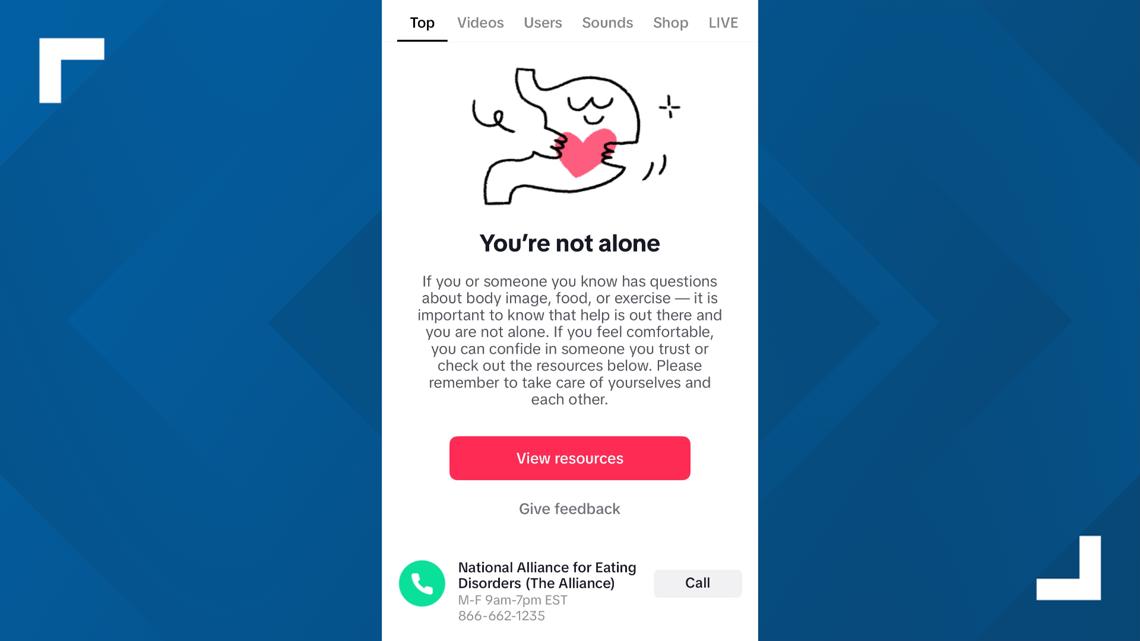TikTok bans #skinnytok due to links with unhealthy weight loss, impacting how teens view their bodies.
MEMPHIS, Tenn. — Millions of people nationwide use the social media app, TikTok. According to an Oxford Economics study, more than 2.4 million people use the app in Tennessee.
You can find videos for nearly anything on there, from popular get ready with me videos to videos showing diet and fitness routines.
But now there are thousands of videos that are unsearchable on the app. Each of them uses the hashtag #skinnytok.
When you search for videos using this hashtag, this image appears:


According to the company, that phrase is banned from the app because several videos have been linked to “unhealthy weight loss.”
Dr. Michelle Bowden with LeBonheur Children’s Hospital said social media can impact the way teens and young adults view their own bodies.
“The part of our brain that makes good decisions, what we call executive function, really isn’t fully formed until we’re about 25,” said Dr. Bowden. “So, teens are particularly susceptible to these images and ideas that they’re hearing from social media because they don’t have a great checks and balances system. So all of a sudden, they start seeing bodies that look different from theirs, and they begin to think that they should look that way too.”
Dr. Bowden believes it can be dangerous to take health and fitness advice from content creators online.
“I really don’t think we should be following those influencers without running that by a health professional first,” said Dr. Bowden. “Often, these influencers don’t tell you what their credentials are. I might suppose that that’s because they don’t necessarily have credentials to back up some of the things that they’re recommending.”
If a teen or young adult is struggling with their weight or body image, Dr. Bowden believes communication is key to helping them.
“If you’re noticing that your children’s bodies are changing dramatically, like they are losing a lot of weight really quickly, or you start noticing that they’re working out a ton, that’s a warning sign,” said Dr. Bowden. “I think keeping an open line of communication is the number one thing that I recommend for parents, then speak to a professional to seek next steps.”
If you or someone you know needs help, call the National Alliance for Eating Disorders at (561) 841-0900. Click here for more resources.
